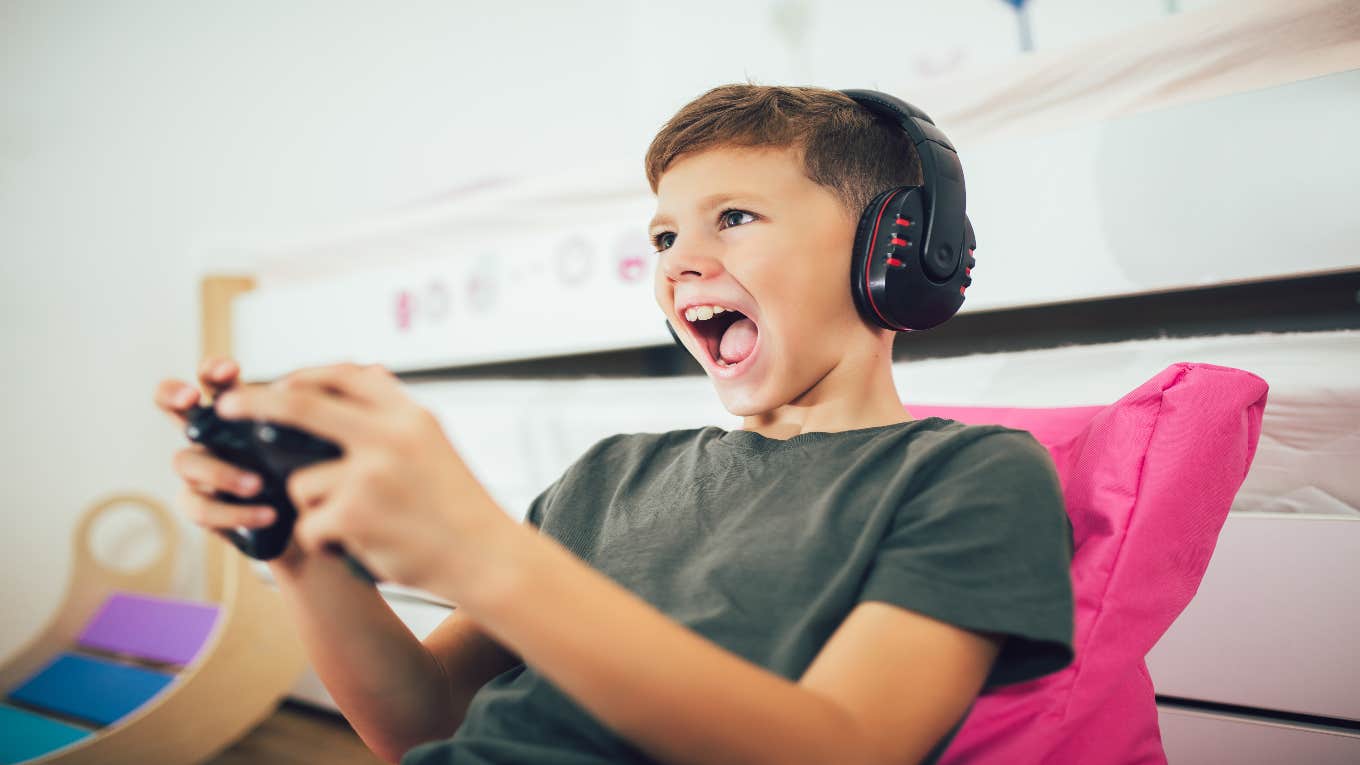What You Can Learn From The 5-Minute Period After A Kid Turns Off A Video Game
Are parents overreacting to their children's video game use? A therapist weighs in.
 adriaticfoto / Shutterstock
adriaticfoto / Shutterstock One of the biggest worries for parents these days is video games. You won't be too hard-pressed to find kids glued to their iPads, or locked away in their rooms for hours on end playing video games with their friends.
If this is your kid, at some point, you've probably wondered if the video games your child plays are even good for them. So, what's the deal with video games? Do they affect your child as much as you think?
Licensed therapist Logan Cohen spoke to host Andrea Miller about video games and the impact they have on kids in the newest episode of Open Relationships: Transforming Together and shares a powerful insight most parents will find incredibly helpful.
How To Tell If Video Games Are A Problem For Your Kid
"Video games are a cultural norm at this point," says Cohen. However, it's important to understand that every child is different, so video games will impact each child uniquely. Some kids can game for a few hours and then do their homework without any problems. For them, gaming is just a stress reliever and a way to unwind after a long day.
On the flip side, some kids may have a harder time controlling their impulses. They may struggle to detach and react with extreme anger or even crying if they have to get off the video game before they feel ready. Of course, some video games give a player a penalty if they turn the game off before the session is over — and we aren't talking about asking a child to self-sabotage within a game, but rather asking them to finish their session and log off in a typical way.
Cohen shares that it might be helpful to view human behavior with an analogy to dogs. "Some dogs can manage rough-housing and then cool down. Some dogs can't." He continues, "What I would really pay attention to from your end is how regulated they stay when it's time to get off."
If you want to tell if your child is addicted to video games, observe their mood soon after they are done.
Cohen explains, "If they're angry and try to be more combative with you then they're becoming compulsively focused on video games." This is dangerous as video gaming can quickly turn into a maladaptive pattern that is hard to control.
"But if they can manage and stay regulated enough then it's probably fine," says Cohen.
If they're not constantly glued to video games, they're likely fine. And if they don't let gaming take over their entire day, they probably have a healthy relationship with it.
Just be sure that they're coming into themselves regardless of their hobbies. Cohen continues, "And the other aspect is being very respectful in honoring vulnerable entities in their communities."
Your child should be well-socialized within their community. They should know how to interact with men, women, and children their age. As long as they're meeting their social goals, their video game habits aren't that big of a deal.
Next, be sure they aren't playing violent video games before they are developmentally equipped to handle them. This is a hotly debated topic, and data has shown both that they can contribute to violence and also that they do not. Child psychiatrist Dr. Sumru Bilge-Johnson tells Akron Children's lands on the side of avoiding very violent games for children, explaining that "Exposure to violent video games can contribute to aggressive behaviors in kids."
Of course, there are benefits to gaming for kids, including the more violent first-person shooter games older teens love. These include increased creativity, better spatial reasoning, strategic thinking and more, according to Dr. Cara Natterson, a pediatrician, in her book Decoding Boys.
That's why it's important to strike a balance in these situations. Limit your child's video gaming to an hour a day on the weekdays and two hours a day on the weekends. And always remember, if there's balance, your child's gaming isn't too much of a concern.
Balancing your child's hobbies, especially video games, isn't easy. We worry they'll miss out on developing their social skills or that they'll become emotionally unstable.
But if they're emotionally balanced and not showing signs of compulsive behavior, then go ahead and let them enjoy their video games for an hour or two a day. This slight indulgence may be what they need to unwind after a long day.
Marielisa Reyes is a writer with a bachelor's in psychology who covers self-help, relationships, career, and family topics.

